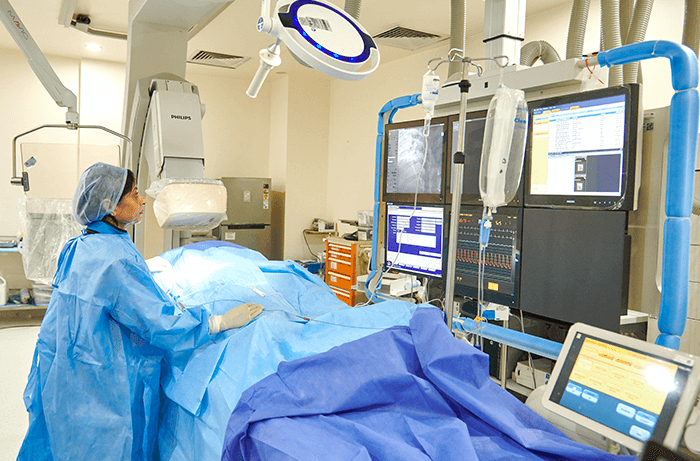×
Select Your Country
 International
International

×
Select Your Country
 International
International


In this treatment, a patient with failing kidneys receives a healthy kidney from a deceased or living donor. Without healthy kidneys, the body builds up dangerous levels of waste and fluid, which is a potentially fatal situation. It is simpler for people to become living donors because everyone has two kidneys and can still function normally with just one, especially in families.
When the patient's kidneys are no longer functional, a healthy kidney from a healthy donor is transplanted. The sole remaining option for people with end-stage renal failure who have been on haemodialysis is typically a kidney transplant. A kidney transplant is frequently chosen as a treatment over a lifetime of hemodialysis when the end-stage renal disease manifests as the kidneys losing 90% of their normal functional capacity.
Choosing Manipal Hospitals
The specialized Center of Excellence in Organ Transplantation at Manipal Hospitals, which pioneered kidney transplantation, is one of the few in its field to enable kidney transplantation, particularly in patients with complex health issues. The Center is proud to have accomplished transplant surgeons who have successfully performed several kidney transplant surgery on patients who have the greatest need for them. Modern operating rooms, labs, post-transplant intensive care units, and comfortable, sanitary wards are all featured in this section. One of the first hospitals in Karnataka to perform kidney transplants using cadavers currently has a cadaver programme in place. Book an appointment at Manipal Hospitals for the best Kidney Transplant in India.
Solutions
Kidney transplant has emerged as a silver lining for those suffering from end-stage renal failure. Some of the common reasons for renal failure include:
Diabetes
Chronic high blood pressure
Chronic glomerulonephritis
Polycystic kidney disease
Complexities
The most serious risk of a transplant is that your body would reject the kidney, as is the case with all transplants when a new organ must be acclimated. It's uncommon for your body to do that, though. In addition to unpleasant side effects, the immunosuppressant medications you must take after surgery can increase your risk of developing non-lymphoma Hodgkin's and some skin cancers, as well as cause weight gain, acne, thinning bones, and increased hair growth.
Number of Cases
We have completed more than 2500 successful renal transplants. Book an appointment to have the best treatment at our nephrology hospital in India.
Infection Control Protocol
In order to prevent infections, we have created entirely segregated, highly sterile controlled-environment wards with HEPA filters.